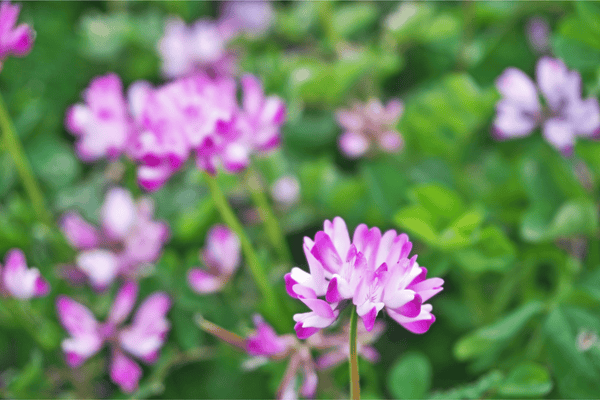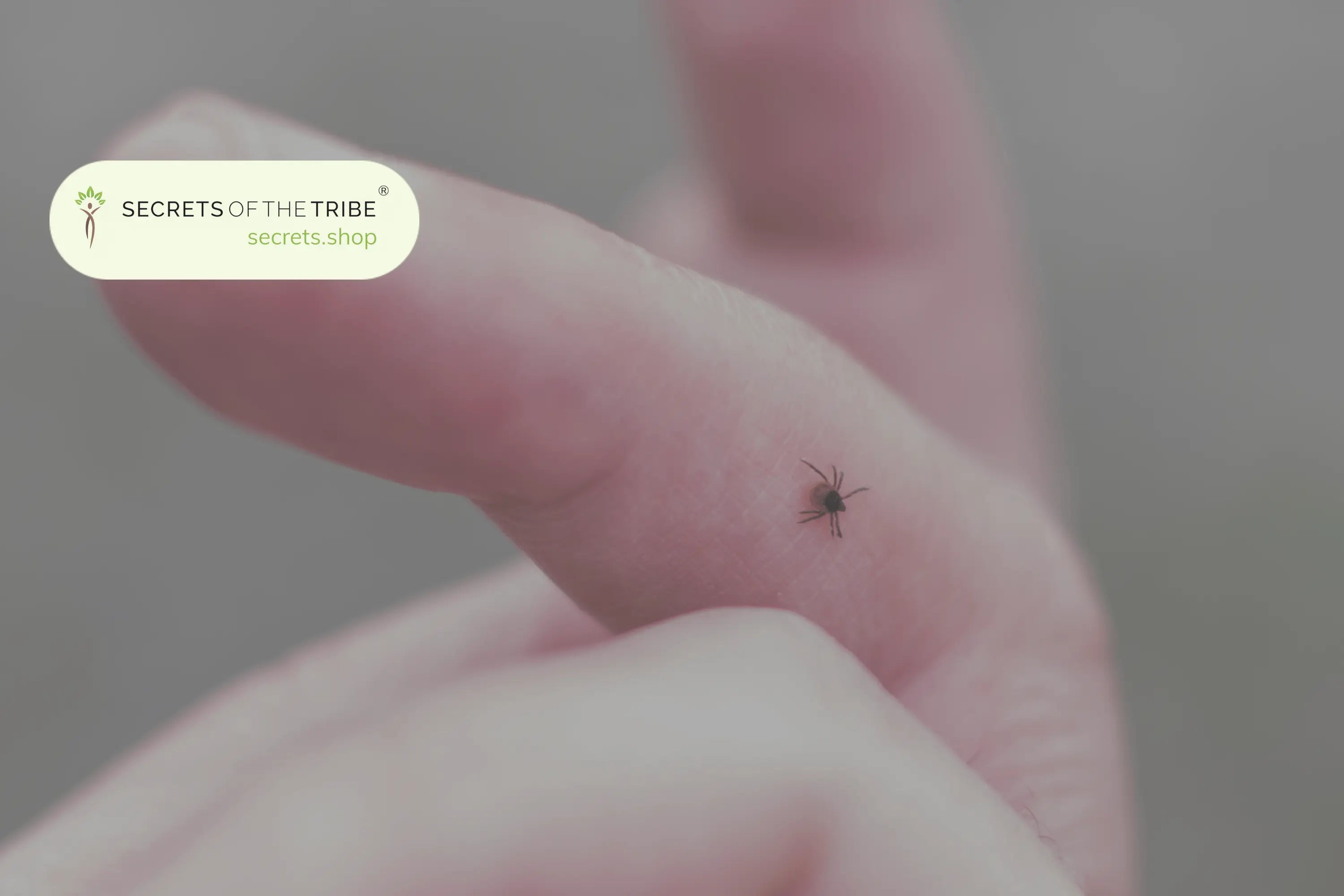Lyme disease, a complex infection transmitted by ticks, can pose challenges in its treatment. While antibiotic therapy is the conventional approach, herbal remedies can play a crucial role in alleviating symptoms and supporting the body's natural healing processes.
Caused by Borrelia burgdorferi bacteria, Lyme disease manifests in various ways, including fatigue, joint pain, neurological issues, and heart problems. Without prompt treatment, it can progress to persistent, recurring, and debilitating health issues.
It's important to note that herbal remedies should never replace professional medical treatment. However, botanical medicines can complement conventional care beautifully. Herbs such as cat's claw, astragalus, and Japanese knotweed offer anti-inflammatory, antimicrobial, and immune-modulating effects that can provide relief from Lyme symptoms
Certain herbs are particularly effective at alleviating joint pain, fatigue, cognitive dysfunction, and poor circulation often associated with Lyme disease. Others play a crucial role in protecting vital organs like the liver and can even enhance the efficacy of antibiotics while minimizing side effects.
In this article, we'll explore some of the top complementary herbs for Lyme disease. When used in conjunction with medical care, these herbs can provide gentle yet potent assistance on the path to recovery.
Cat's Claw (Uncaria tomentosa)
Cat's claw is a well-known herbal remedy for managing Lyme disease due to its powerful anti-inflammatory and immune-modulating properties. This woody vine, native to the Amazon rainforest, contains potent plant compounds that combat infections effectively.
Studies have demonstrated that cat's claw has direct antibacterial action against Borrelia burgdorferi, with the ability to penetrate bacterial cell walls. It's also been shown to break down the protective biofilms that Lyme bacteria create.
In addition to its antibacterial properties, cat's claw reduces inflammatory cytokines and boosts the activity of immune cells, enhancing the body's natural defenses against chronic Lyme.
Furthermore, cat's claw is effective at alleviating joint pain and arthritis symptoms commonly associated with Lyme. It achieves this by blocking inflammatory mediators and improving circulation, providing much-needed relief.
With robust research supporting its antimicrobial and anti-inflammatory properties, cat's claw is undoubtedly one of the premier herbs for Lyme disease.

Astragalus (Astragalus membranaceus)
The revered Chinese herb astragalus is known for its ability to bolster the immune response against infections. Scientific research confirms that this adaptogenic plant stimulates the production of white blood cells, antibodies, and natural killer cell activity, all of which are crucial in combating invaders.
Astragalus contains immune-optimizing polysaccharides that increase the body's resistance to Lyme bacteria and activate macrophages to help clear pathogens. It also regulates overactive T-cell responses, promoting balanced immune function.
The herb's saponins and flavonoids provide anti-inflammatory and antioxidant effects, helping to reduce Lyme-induced inflammation and protect tissues and nerves from damage. Additionally, astragalus combats the profound fatigue and chronic lethargy often experienced with Lyme disease by enhancing energy metabolism and reducing fatigue-inducing substances.
With its ability to regulate immunity and increase stamina, astragalus is a versatile ally for individuals grappling with persistent Lyme disease. This resilient root helps fortify the body against the debilitating effects of infection.

Japanese Knotweed (Polygonum cuspidatum)
Japanese knotweed is a herb that demonstrates potent activity against Lyme disease. High levels of resveratrol in knotweed provide antimicrobial and anti-inflammatory properties that inhibit Borrelia burgdorferi bacteria.
Research has shown that the resveratrol and polydatin compounds in Japanese knotweed significantly suppress the replication and proliferation of Lyme spirochetes. Additionally, the herb disrupts the protective biofilm defense of these bacteria.
In addition to its direct effects on Lyme spirochetes, Japanese knotweed contains antioxidants that regulate inflammation and protect tissues from damage. It also enhances circulation to affected areas, reducing joint inflammation and pain associated with Lyme while improving oxygenation and aiding tissue recovery.
With demonstrated antibacterial action and anti-inflammatory effects, Japanese knotweed is a valuable herbal addition to any Lyme disease treatment protocol. It specifically targets Lyme spirochetes, providing effective relief from symptoms.

Teasel Root (Dipsacus fullonum)
Teasel root is another herb with specific activity against Lyme bacteria, making it a useful adjunct in treatment. Teasel not only alleviates symptoms but also enhances the effectiveness of antibiotics when used in combination.
Research has indicated that compounds such as baicalein, rosmarinic acid, and oleanolic acid in teasel root exhibit antimicrobial effects, inhibiting the growth of Borrelia burgdorferi. In some studies, teasel root extract has even been able to completely eliminate Lyme bacteria.
Beyond its infection-fighting properties, teasel root is renowned as one of the top herbs for Lyme disease by relieving associated inflammatory joint and muscle pain. Its anti-inflammatory agents reduce swelling and discomfort.
Additionally, teasel supports the drainage of damaged tissues and improves blood circulation to affected areas when used alongside antibiotics, enhancing the delivery of antimicrobials to infection sites.
With its demonstrated antibacterial action and anti-inflammatory effects, teasel root serves as one of the most valuable herbs for Lyme disease, addressing both symptoms and the underlying infection.

Nature’s Allies When Facing Lyme
The herbs for Lyme disease discussed in this article underscore the potent and multifaceted benefits that botanical medicines can offer in conjunction with Lyme disease treatment. These herbs, including cat's claw, astragalus, Japanese knotweed, and teasel root, contribute to fighting the infection and managing debilitating symptoms.
While some herbs for Lyme disease show promise in laboratory settings, it is crucial to consult with a healthcare professional for appropriate treatment protocols. Continued research is shedding light on how plant compounds can best complement prescribed antibiotics or medications.
Professional guidance is indispensable when dealing with complex conditions like Lyme disease. However, the gentle modulation of immunity, reduction of inflammation, enhancement of circulation, and combating infections make herbs ideal supplements during the recovery process.
Collaborate closely with your healthcare provider to determine safe supplementation. When integrated effectively, herbal formulas for Lyme disease offer a blend of ancient wisdom and modern science. May these natural allies bestow their healing gifts and restore vitality to those in need.





Share:
Top 5 Best Mushrooms for Health and Boosting Wellness
Microbiome Magic: What is the Best Mushroom For Gut Health?